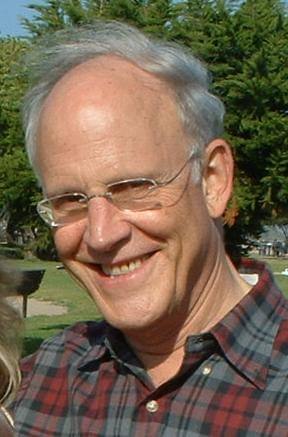The School of Physics of the Institute for Advanced Studies at the Hebrew University which will be held today will deal this year with innovations in particle physics

On Tuesday, December 27, the School of Physics will be opened at the Institute for Advanced Studies at the Hebrew University, which will be held this year under the theme of particle physics. Throughout the ten days of the school, the students will be able to hear lectures from the best experts in the field, including researchers who work at the world's largest particle accelerator, CERN, in Switzerland, who will talk about the Higgs particle known as the "divine particle" and supersymmetry. This year, about a hundred students will participate in the school, most of them coming from abroad.
"The school's lectures will deal with topics that are at the forefront of physical research in the world, while trying to understand the findings recently obtained from the experiments in the particle accelerator," says Prof. Eliezer Rabinovitch, head of the Institute for Advanced Studies.
The head of the school is for the fifth year the winner of the Nobel Prize in Physics for 2004 and a graduate of the Hebrew University Prof. David Gross. Prof. Gross heads the Kavli Institute for Physics at the University of California, and is considered one of the leading researchers in the world in the field of quantum field theory, which forms the theoretical basis of particle physics.
Among the lecturers at the school is Prof. Maria Spiropoulou from the California Institute of Technology (Caltech), who works in the international team of CERN. "My work is part of the search for the origins of the universe," is how Prof. Spiropoulou described her work at the particle accelerator.
Prof. Eric Verlind from the Institute of Theoretical Physics at the University of Amsterdam will also speak. In an article he published a year ago, Verlind argued that gravity as a physical law in itself is an illusion and there must be something more fundamental from which gravity "emerges". In other words, the force we define as "gravitational force" is actually a byproduct of nature's tendency to maximize disorder.
In addition to the school's lectures, intended for students and researchers in the field of physics, on January 3 Prof. Gross will hold a lecture for outstanding Jewish and Arab high school students as part of the tradition of the Institute for Advanced Studies and the Hebrew University to maintain extensive relationships with the wider community and with future students.

6 תגובות
There is no, no, no dark energy and matter. There just isn't!
And there is no, no, no Higgs particle. There just isn't!
An Embarrassingly Obvious Theory Of Everything
http://universe-life.com/2011/12/10/eotoe-embarrassingly-obvious-theory-of-everything/
Yaron ( https://www.hayadan.org.il/physics-school-271211/#comment-320492 ):
The article you pointed to is not at all similar to Yehuda's words
The divine particle?... Leon Lederman wrote a book about the Higgs and chose the name "The Goddamn Particle". But the title was too long and did not fit the dimensions of the cover. The editor wanted to shorten it, and so the name "The God Particle" was chosen. The rest is history... and to a large extent also hysteria. In retrospect, and in light of the great difficulty in discovering it, there is no doubt that the original nickname coined by Darman is more appropriate.
And the curvature of space is, according to Verlind, a consequence of the change of entropy in the accumulation of particles.
Particles are divided in space and a moving particle - it feels the statistical resistance to its movement. be it
It's amateurish on my part to lay out his doctrine here. He talks about the principle of minimum entropy - the measure of order,
as dictates the laws.
Although there will be hard to digest things like mass density hologram equipotential surfaces.
The article is published in SPRINGER, and in addition the professor received the Spinoza Prize in the amount of 2.5 million euros and also a grant to research the problem. What is the effect of the theory on event horizon black holes, on string theory and laws
Microgravity - they are different. Should we stop treating gravity as a fundamental force and more?
Similar to the Israeli Wolf Prize and the Spinoza Prize, this is the prestigious prize in the Netherlands for scientists.
His name appears in Wikipedia (as do many others). In the article he derives Newton's equations and equations
Einstein from entropy. Worth reading even if it doesn't convince you. The article can be read by a graduate
Bachelor of Science. The article is long. I posted a link to it that was censored, and there is a link on Wikipedia.
The University of Jerusalem invited him - that also means something.
Regarding Prof. Eric Verlind's claim that gravity is a physical law...
Didn't Einstein actually show that gravity comes from the curvature of space?
Yehuda Svardamish. Eric Verlind's article fits your worldview somewhat. He doesn't like dark matter either.
The article is available for download at
http://arxiv.org/abs/1001.0785
It was already published this year in SPRINGER, which is a very prestigious publication.
Won the Spinoza Prize in the amount of 2.4 million euros - the Dutch Nobel. It can be marked in my subjective opinion and please don't mow me down, as a potential Nobel Prize in Physics in a few years, when they will filter out that this is no longer a hypothesis. Can be read by a Bachelor of Science graduate. He deduces gravity and general relativity from the laws of entropy. Simply put: just as a person in a group who wants to do something feels group pressure, so a particle in statistics that moves and changes the statistics feels force.